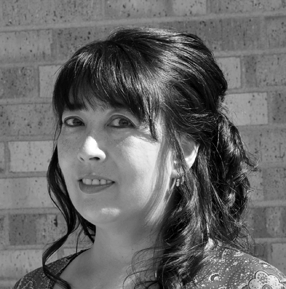#to my mother's dementia #kaze no denwa
how do I admit I’m almost glad of it?
the way it’s scraped off
those flash-storms of rage
I grew delicately-feathered
luna moth antennae
to fine-tune your emotional weather:
sometimes a barometric shift
in the house’s atmosphere / a tight
quickening / some hard dark shadow
flickering glossy as obsidian
pulled down like a nightshade
behind your irises / but sometimes
you struck with no warning at all
rattlesnaked fang of lightning
incinerating my moon-pale wings
to crumpled cinder and ash
now your memory resets
itself every night / a button
clearing the trip odometer
back to zero / dim absinthe fizz
of radium-green glow
from the dashboard half-lifing
a midnight rollover from
omega to alpha to omega
I remember when you told me
(maybe I was three?)
I was mentally damaged
like the boy across the street /
said you’d help me pass
for normal so no one would know
but only if I swore to obey
you / and only you / forever
now your memory fins
around and around / like
the shiny obsessive lassos
of a goldfish gold-banding
the narrow perimeters
of its too-small bowl
coming home from school
(maybe I was fifteen?)
you were waiting for me
just inside the front door /
accused me of stealing a can
of corned beef hash from
the canned goods stashed
in the basement / then beat me
in the face with your shoe
how do I admit I’m almost glad of it?
that I’ve always pined for you
like an unrequited love / though I
was never beautiful enough
for you / your tinned bright laugh
shrapneled flecks of steel to hide
your anger when people used to say
we looked like one another
but now we compare
our same dimpled hands /
the thick feathering of eyebrows
with the same crooked wing
birdwinging over our left eye /
our uneven cheekbones making
one half of our face rounder
than the other / one side
a full moon / the other side
a shyer kind of moon
how can I admit I’m almost glad of it
when you no longer recognize
yourself in photographs
the mirror becoming stranger
until one day—will it be soon?—
you’ll look in my face / once again
seeing nothing of yourself
reflected in it, and—unsure
of all that you were and all
that you are—ask me: who are you?
Copyright © 2019 by Lee Ann Roripaugh. Originally published in Poem-a-Day on July 24, 2019, by the Academy of American Poets.
“‘#to my mother’s dementia #kaze no denwa’ is part of a series of ‘wind phone’ (kaze no denwa) poems inspired by a disconnected phone booth in Japan where people have been pilgrimaging to speak to their dead following the 2011 Tohoku earthquake and tsunami. I was so moved by this story that I began to wonder what it might mean to write ‘wind phone’ poems—poems addressed to what is irrevocably lost and/or disappearing, what has been forcibly taken or erased, what one wishes to save even if/when it can’t be saved. These poems have become a vehicle for me to consider and mourn mass extinction, potential environmental collapse, as well as more personal losses and traumas—including witnessing my elderly parents’ minds and memories rapidly evanesce from dementia like glaciers in a too-warm sea. In this particular poem about my mother’s dementia, which has lessened the severity of her undiagnosed mental illness, I mourn the ways in which she was unable to parent me. At the same time, in the reversal of roles in which I parent and care for her now, I’ve discovered a hard-won tenderness which—in the way of all things about to disappear in a crucial tipping point—I feel exists at the precipice of violent loss.”
—Lee Ann Roripaugh

